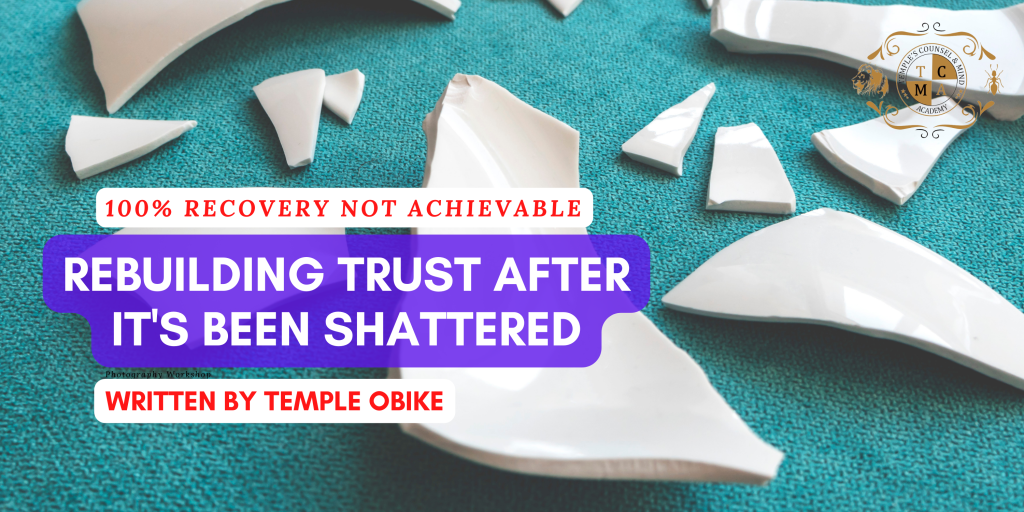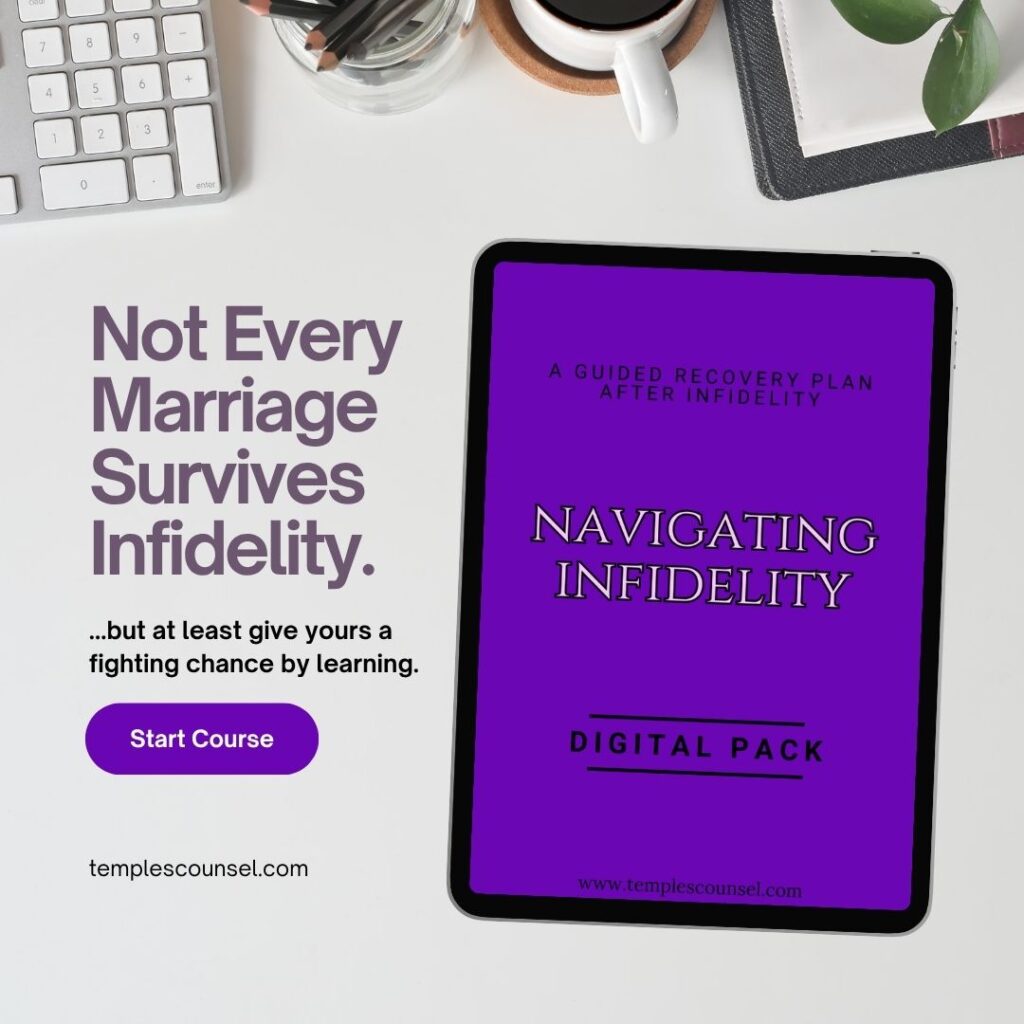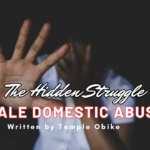Soji, 40, and Maureen, 41, (I’m guessing you are a regular and already know the names are all fictitious) in-session are sitting down and trying to hear what the other person has to say first. It was a bit tough at the onset but their therapist was experienced and was able to thaw the ice a bit. Now they are willing to speak. This is where the real narrative emerges.
Soji has been acting strangely since we emerged from the lockdown in 2021. I got suspicious and scared at the same time said Maureen. So I went to snoop around. On snooping around I discovered a chat on his WhatsApp where he was speaking to a friend of his. In his words, he said “ Bro I can’t trust my wife anymore she’s been lying about money and her need for soaking up validation from other sources is also worrisome”. Everything fell into place for Maureen.
He has been giving me the cold shoulder and I feel his anger. He just can’t seem to get over his resentment toward me since he found out that I paid over N2,000,000 to kick off a side-business I didn’t speak to him about. My worry was that he may think I’m a spend-thrift (something my ex-husband complained about). I didn’t think I was being dishonest until Soji’s reaction.
MOVING AHEAD
Loads of couples harbor feelings of mistrust towards each other. We have learnt how to re-introduce intimacy and trust through the power of positive communication. Most of the issues faced in marriage and early relationships are trust related.
Trust is an essential aspect of intimacy
Maureen knows that her emotional sensitivities make it difficult for her to open up to Soji and increase her fear of being hurt or left by him. She strives to be transparent with him about finances but struggles to do so because she doesn’t feel secure in her relationship with him. After enduring a difficult divorce, Maureen has trust issues and describes how she “walks on eggshells,” fearing she will lose Soji.
It seems counter-productive but by being vulnerable, you can create a level of emotional safety with your partner. It’s the primary way to strengthen a marital bond and keep love alive. Through vulnerability, you’ll be able to re-establish a secure emotional attachment and preserve intimacy in your marriage.
Maureen is sure she’s only doing the necessary for building her business but she now realized that withholding financial information is damaging to their marriage.
HOW TO KNOW WHEN A SPOT HAS BEEN HIT
You are having a conversation with your partner and then they say something that hits at you directly. This came out of the blues and without warning. The first sign to take note of is the sudden shift in the emotional tone of your conversation.
The second sign to take note of is the introduction of external, passive-aggressive or internal anger. These expressions come with someone becoming angry or enraged, or they could also become withdrawn or really distant. These new signals sent out by the hurt partner destabilizes the other in most cases (except in cases where a partner is deliberately trying to get on their partners nerves).
Soji’s Take
“ As hurt as I get I do not always want to speak about things. This does not mean I no longer love Maureen. I just have sensed a secrecy about her that is very uncomfortable. Her need to also be reassured is a bit over-bearing as it seems she is always pushing me to say or do something hurtful. Almost like she needs me to confirm a bias she already has. Once we get to these part she raises her tone and it communicates disrespect to me. She then takes it to the next level by threatening to leave me.
Maureen’s response has a bit of soul.
Soji never wants to speak about issues. Maybe it’s his orientation on what and how a man is supposed to handle their issues. This silent treatment is traumatic for me because this is how the issues with my ex-husband began until he finally asked for a divorce. Feelings of rejection gnaw at me when he rejects me (or makes me feel that way). I have learnt with the help of my therapist that the approach is to first of all heal from my wounds inflicted by my previous divorce and then learn to give him space and see it as something we all need rather than something I’m forced to give.
LEARNING TO REBUILD TRUST
The first thing you must learn about trust is that it usually has more to do with YOU than it has to do with your partner. To trust someone else you must first trust the fact that their intentions towards you was genuine.
One of the hardest things about trusting someone is learning to have confidence in your own judgment. Trust is about much more than finding signs that your partner has been unfaithful. It’s about believing that they have your best interests at heart.
At birth we learnt to trust our care-givers but as we matured and gathered various life experiences, we became less trusting as a means of self-protection. Falling in love and getting married can be invigorating and scary all at once. An inability to trust a new partner may take several forms, from feeling they’re dishonest or secretive, to doubting they’re going to keep their promises or be dependable.
SOMETHING TO THINK ABOUT
For your partner, it would be highly unfair to make them solely responsible for creating feelings of mistrust. You must take equal responsibility for contributing to the atmosphere of safety in your relationship. Here are things you must do if you’re considering rebuilding trust in your relationship:
- What is the story I’m telling myself?
- Does my fear of loss and abandonment cloud my perspective and cause me to overreact to my partner’s actions?
- Is my mistrust coming from something that is actually happening in the present, or is it related to my past?
- Do I feel comfortable asking for what I need and allowing myself to be vulnerable?
- Do I bring my best self to my interactions with my partner?
- Do I possess self-love and allow myself to be loved and respected?
UNDERSTANDING SELF-PROPHECIES
Are you already on your way to fulfill a self-prophecy? Many individuals get into relationships believing that their partner will hurt them but what they do not know is that believing this would unconsciously motivate hurt to present itself in your marriage or relationship. However when you believe your partner loves you and is looking out for your general good, you begin to enjoy your relationship and nurture trust.
7 STEPS TO WALK
Here are seven ways to proactively build trust in your relationship.
Acknowledge your feelings and practice being vulnerable in small steps:
Build confidence in being more open with your partner. Discussing minor issues (schedules or meals) is a great place to start before tackling bigger matters like disciplining kids or finances.
Be honest and communicate about key issues in your relationship:
Be sure to be forthcoming about finances, your past, and concerns with a family member, co-workers, or children. Don’t sweep important issues under the rug because this can lead to resentment.
Challenge mistrustful thoughts:
Ask yourself: is my lack of trust due to my partner’s actions, my own insecurities, or both? Be aware of unresolved issues from your past relationships that may be triggering mistrust in the present.
Trust your intuition and instincts:
Have confidence in your own perceptions and pay attention to red flags. Be vulnerable and ask for reassurance if you feel mistrustful.
Assume your partner has good intentions:
If he or she lets you down, it may just be a failure in competence–sometimes people simply make a mistake.
Listen to your partner’s side of the story:
Believe that there are honest people in the world. Unless you have a strong reason to mistrust him or her, have faith in your partner.
Practice having a recovery conversation after an argument:
Take a short break if you feel overwhelmed or flooded and set a time to process what happened. This will give you both time to calm down and collect your thoughts so you can have a more meaningful dialogue with your partner.
POST-ARGUMENTS ALWAYS REMEMBER
After an argument with your partner, your primary focus must be on listening to your partner’s perspective, collaborating, building intimacy, and restoring safety and goodwill.
Emotional attunement and relaxing together can help you stay connected in spite of your differences. This means turning toward one another by showing empathy, responding appropriately to bids for connection, and not being defensive.
Asking your partner open-ended questions is also a great way to increase emotional closeness and build trust. If you ask questions that require a yes or no answer, you’re closing the door to intimate dialogue. In other words, take your time and make love to your partner with words.
The success of your relationship or marriage depends on your ability to trust each other. Real trust is built in the real small moments of connection that makes you feel safe with your partner. This is what long lasting happy unions are built on.
How to rebuild trust when it’s been broken
After trust has been affected, you must get to a point where you are setting a time to talk, naming the feelings you experienced due to the breach of trust without blame or criticism, listening to your partner without judgment, and each partner describing their perspective and discussing any feelings that were triggered by the incident. These are the things that would help you rebuild trust.
On this quest to rebuild trust you must;
- Be willing to assess how you contributed to the atmosphere of distrust
- Be able to hold yourself accountable through apologies and a willingness to accept a genuine one tendered
- Be able to create a plan that prevents distrust from reoccurring in the future.
On a closing note Soji and Maureen ended on this note. Soji was able to become vulnerable, apologized for his stonewalling (silent treatment) that had led her to feelings of insecurity and mistrust. Connecting with a partner often helps you keep the flames of trust burning. This effort got Maureen comfortable and an automated flow of full disclosure was sent Soji’s way in response.
It’s within our power to break free from mistrust and create intimacy fostered by good communication. This is truly what your marriage and relationship deserves. We will include a self-assessment exercise containing questions that you and your partner can ask each other. Most of these questions will take bot of you to a vulnerable point that can start to open up intimate possibilities.



